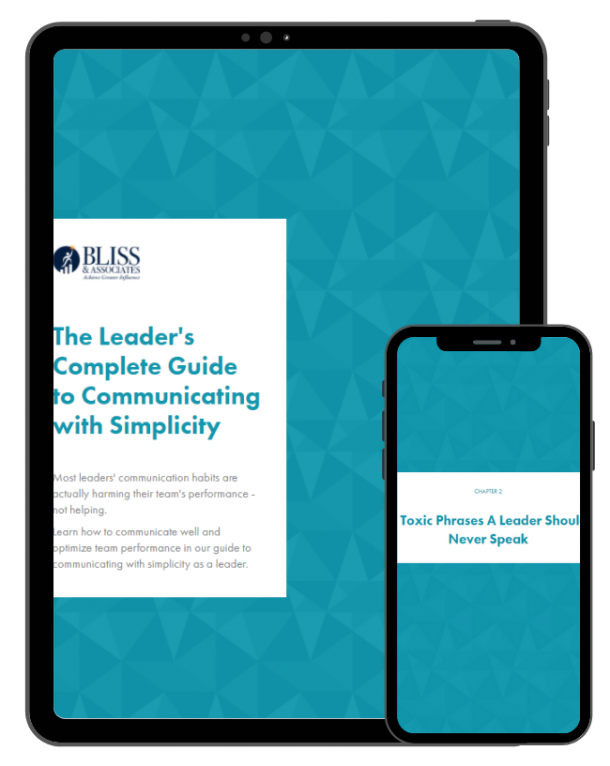
I have a confession to make. When I drive an automobile, I have a strong tendency to push the edges of the posted speed limit. For example, when the sign indicates the speed limit is increasing by 10 mph, I believe that applies as soon as I can see the sign, not after I pass the sign. Conversely, when a sign reduces the speed limit by 10 mph, I rationalize it only applies when I physically pass the sign, and I can begin to slow down on the other side!
There, I’ve confessed! Yet, there are times when I sense there is a police car with a radar gun just around the bend or behind those upcoming bushes, and I slow down to be within or just under the speed limit. This sense tends to be pretty reliable for me, so I really pay attention to it. I hope some of you can identify with getting a similar sensation.
If you are like most leaders, you rely on data when deciding to launch a new initiative or solve a problem. We sometimes believe that data will make us smarter than we are. Data may give us more information than we were aware of previously, yet I don’t think it makes us any wiser.
As decision-makers, most of us feel better when we have more certainty about the outcome of a decision we are considering. So, it’s reasonable to say we put faith in data. Did you know that virtually all the data suggested the chances were between 70 and 99 percent that Hillary Clinton would win the recent presidential election?
Oops! Apparently the data was based on what people said they were going to do, and not what they actually did. Something unexpected must have happened to millions of people in the voting booth.
Don’t worry, I’m not going to get into a political discussion here.
But this situation illustrates my growing awareness of how sometimes an over-reliance on data puts us in danger of not tapping into our ability to think, be curious, and to utilize our God-given gift of intuition. Relying too much on what the data says can limit our willingness to examine bold and brilliant ideas, particularly those which don’t have any “reliable” data to support them.
As I mentioned in my driving confession, I don’t have any data to support the sense the police are waiting around the bend – it’s just a feeling. It’s really a spark of intuition.
So, how can we tap into our intuition and mine the gold already within us? The answer, in a word, is “questions.” The right question allows our thinking mind to do just that – think. This is different from what our educational system has taught most of us to do, which is to regurgitate information…to quote data. There really is no creative thinking in that method at all.
The right set of questions—and being able to really think into the answers—allows us to utilize our creative and intuitive minds to develop new insights, new perspectives and new ideas. Useful ideas seem obvious after the fact – when we have hard data to prove they worked. Yet in reality, just about every breakthrough idea started not with a solution, but with a difficult or curious question.
The ability to ask ourselves questions, imagine possibilities, and allow the pursuit of curiosity, particularly when we are uncertain of an outcome, is what enables us to recognize unique opportunities and truly make a difference. After all, isn’t that a big part of being a leader? This is a skill we can definitely build and develop with practice.
I am a firm believer in the truth that if a question comes to our mind, we must have the answer to that question within us, or we wouldn’t have the awareness to think of the question in the first place.
But asking unique questions and allowing ourselves to think into possible answers is a practice many people don’t implement. Unfortunately, those leaders have very limited chances of reaching their full potential.
This practice of asking curious questions is what I regularly do in my role as a coach to leaders up and down the East Coast of the US. These interactions have resulted in many of my clients achieving opportunities worth hundreds of thousands (and in a few cases, millions) of dollars in their businesses, just because they allowed themselves the opportunity to think.
What is one area of your leadership life that is not quite where you would like it to be?
Are you not getting the results you thought were possible?
Does your communication with your team seem to sometimes go over like a lead balloon?
Do you find yourself impacted by distractions and interruptions more than you’d like?
Asking yourself some unique questions enables you to think about the possible causes for the less than desirable results you may be experiencing. Although this practice is powerful and is the answer to many roadblocks, without experience, any initial attempts to do this on your own may not be successful. If this is the case for you, let me know. I’d be happy to spend some time to help you identify your key questions.
Best Regards,
Bill
PS – As a recently appointed Executive Director with the John Maxwell Team, I am now authorized to teach you and the other leaders in your organization the Maxwell Method of Coaching, which has the process of asking curious and insightful questions at its core. Never before has this methodology been available without being a full member of the John Maxwell Team – until now. Learning this methodology will have a massive impact on how you lead both yourself and others.
PPS – Much of the ideas contained above came from a new book I am reading entitled Hunch – Turn Your Everyday Insights Into the Next Big Thing by Bernadette Jiwa. It is a brilliant read, filled with lots of insight to tap into your intuition.

